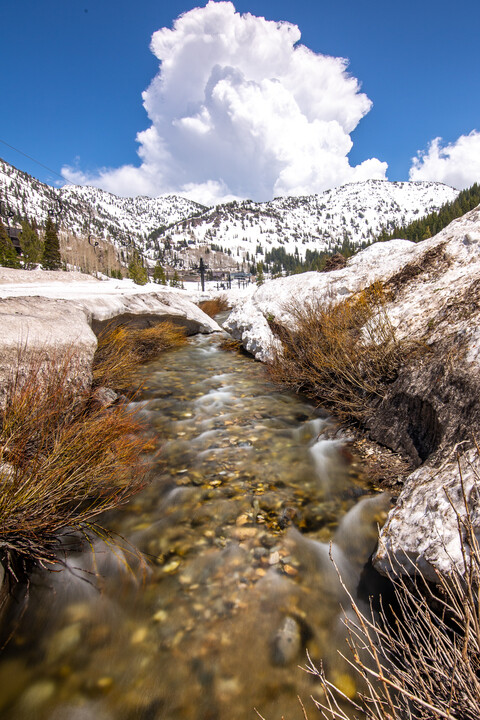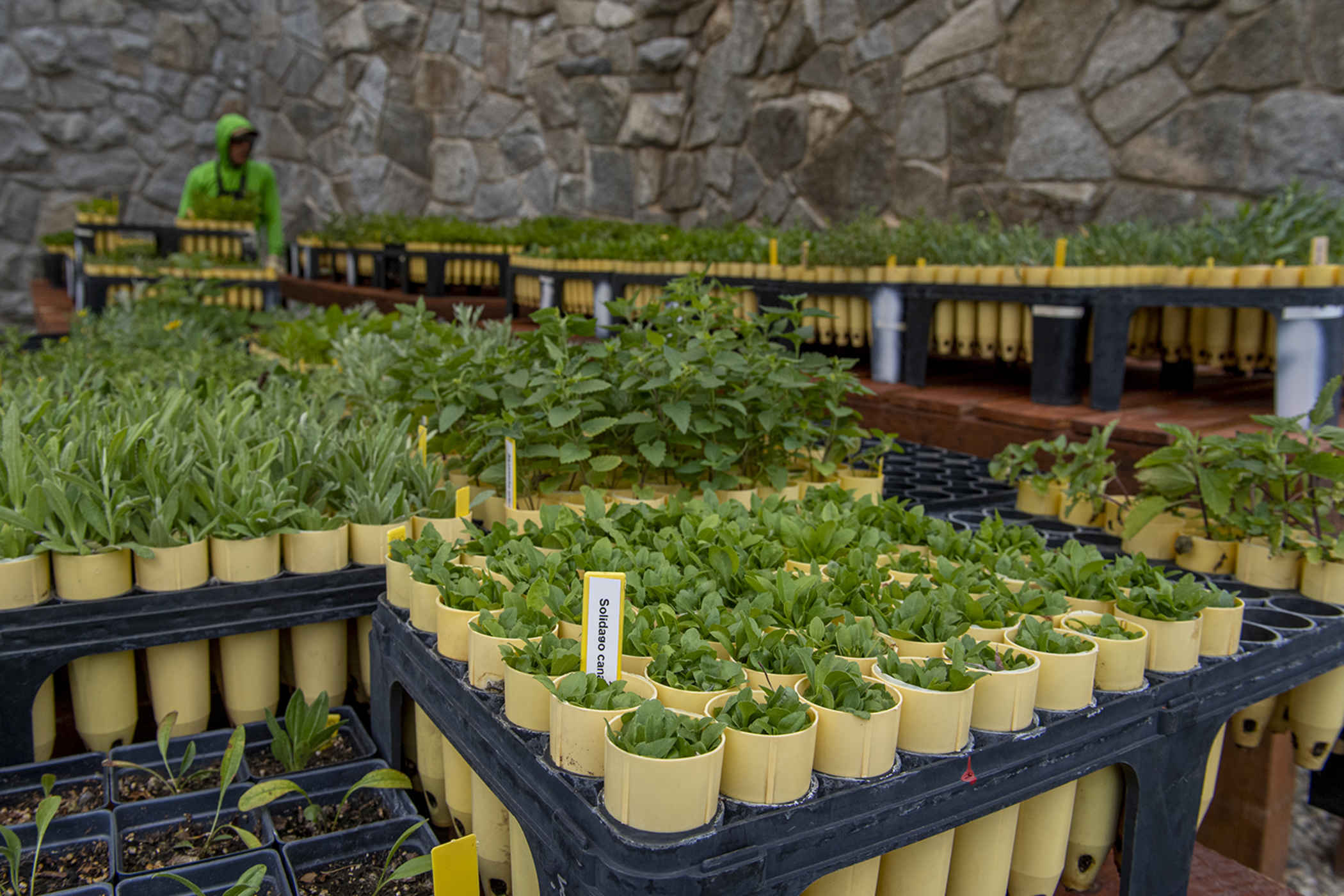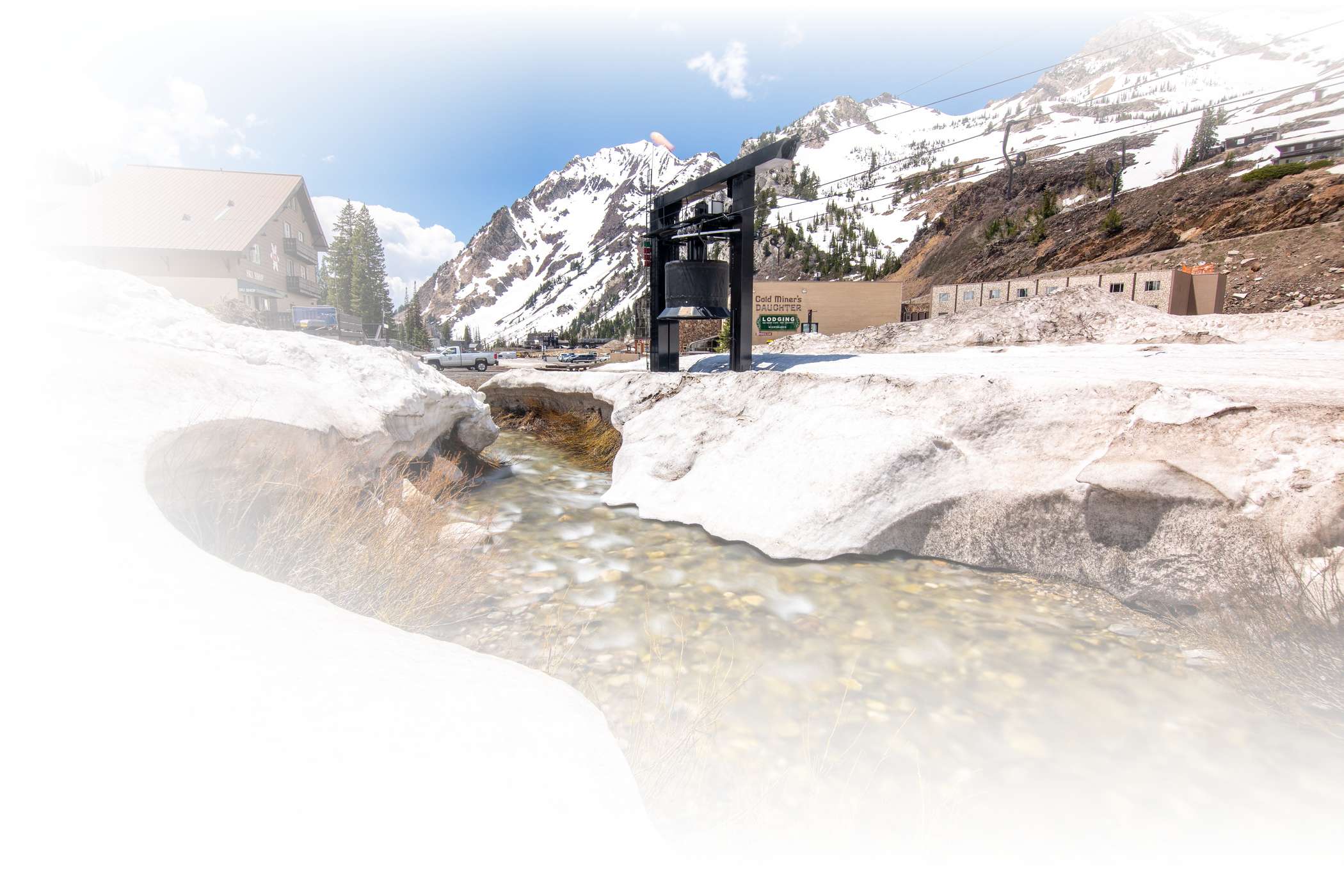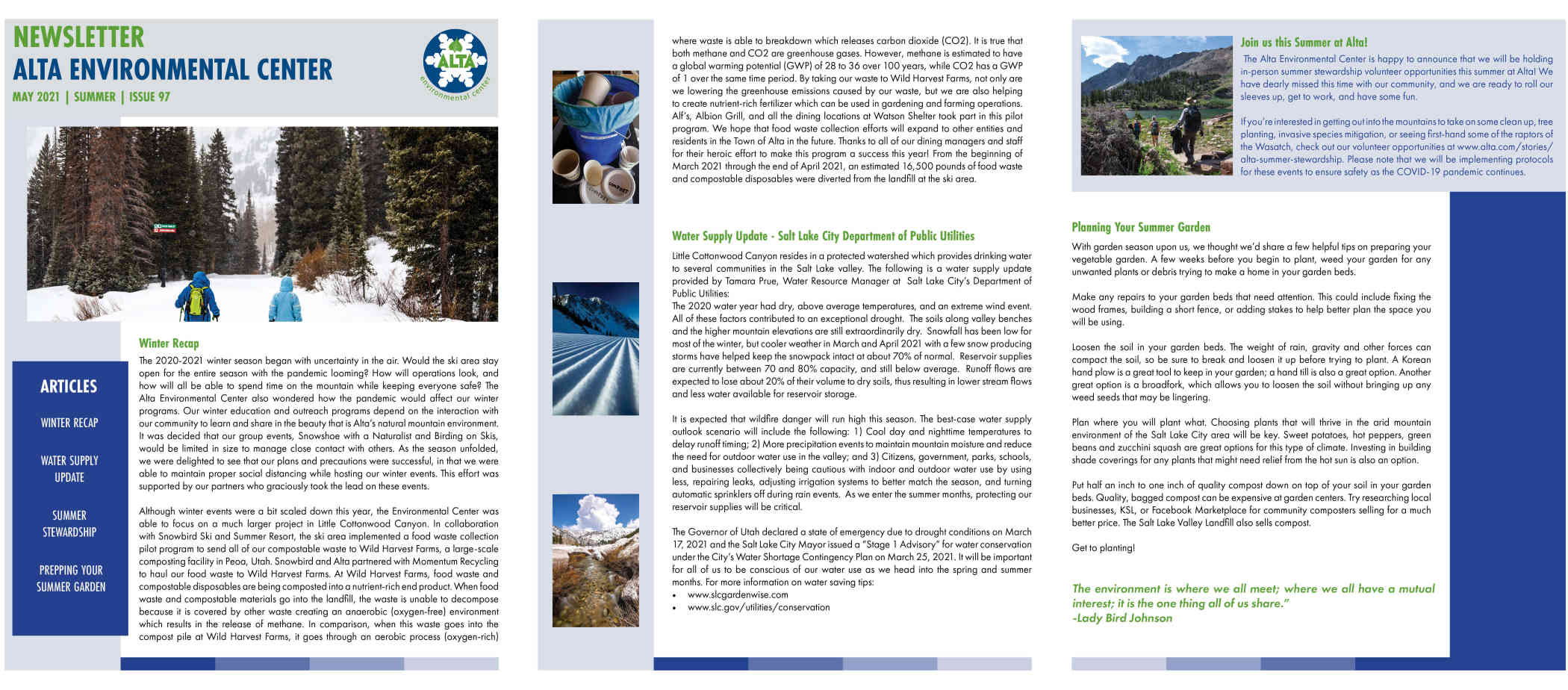ISSUE NO. 97
Download the Spring 2021 Newsletter
Winter 2020-21 Recap| A LOOK BACK ON THIS WINTER SEASON AND A GLIMPSE INTO PLANS FOR THE SUMMER
The 2020-2021 winter season began with uncertainty in the air. Would the ski area stay open for the entire season with the pandemic looming? How will operations look, and how will all be able to spend time on the mountain while keeping everyone safe? The Alta Environmental Center also wondered how the pandemic would affect our winter programs.
Our winter education and outreach programs depend on the interaction with our community to learn and share in the beauty that is Alta’s natural mountain environment. It was decided that our group events, Snowshoe with a Naturalist and Birding on Skis, would be limited in size to manage close contact with others. As the season unfolded, we were delighted to see that our plans and precautions were successful, in that we were able to maintain proper social distancing while hosting our winter events. This effort was supported by our partners who graciously took the lead on these events. Although winter events were a bit scaled-down this year, the Environmental Center was able to focus on a much larger project in Little Cottonwood Canyon.
In collaboration with Snowbird Ski and Summer Resort, Alta Ski Area implemented a food waste collection pilot program to send all of our compostable waste to Wild Harvest Farms, a large-scale composting facility in Peoa, Utah.
Snowbird and Alta partnered with Momentum Recycling to haul our food waste to Wild Harvest Farms. At Wild Harvest Farms, food waste and compostable disposables are being composted into a nutrient-rich end product. When food waste and compostable materials go into the landfill, the waste is unable to decompose because it is covered by other waste creating an anaerobic (oxygen-free) environment which results in the release of methane. In comparison, when this waste goes into the compost pile at Wild Harvest Farms, it goes through an aerobic process (oxygen-rich) where waste is able to break down, which releases carbon dioxide (CO2).
It is true that both methane and CO2 are greenhouse gases. However, methane is estimated to have a global warming potential (GWP) of 28 to 36 over 100 years, while CO2 has a GWP of 1 over the same time period.
By taking our waste to Wild Harvest Farms, not only are we lowering the greenhouse emissions caused by our waste, but we are also helping to create nutrient-rich fertilizer which can be used in gardening and farming operations.
Alf’s, Albion Grill, and all the dining locations at Watson Shelter took part in this pilot program. We hope that food waste collection efforts will expand to other entities and residents in the Town of Alta in the future. Thanks to all of our dining managers and staff for their heroic effort to make this program a success this year! From the beginning of March 2021 through the end of April 2021, an estimated 16,500 pounds of food waste and compostable disposables were diverted from the landfill at the ski area.
Water Supply Update | SLC Department of Public Utilities

Little Cottonwood Canyon resides in a protected watershed that provides drinking water to several communities in the Salt Lake valley. The following is a water supply update provided by Tamara Prue, Water Resource Manager at Salt Lake City’s Department of Public Utilities:
The 2020 water year had dry, above-average temperatures, and an extreme wind event. All of these factors contributed to exceptional drought. The soils along valley benches and the higher mountain elevations are still extraordinarily dry. Snowfall has been low for most of the winter, but cooler weather in March and April 2021 with a few snow-producing storms has helped keep the snowpack intact at about 70% of normal. Reservoir supplies are currently between 70 and 80% capacity, and still below average. Runoff flows are expected to lose about 20% of their volume to dry soils, thus resulting in lower stream flows and less water available for reservoir storage.
It is expected that wildfire danger will run high this season. The best-case water supply outlook scenario will include the following:
- Cool day and nighttime temperatures to delay runoff timing
- More precipitation events to maintain mountain moisture and reduce the need for outdoor water use in the valley
- Citizens, government, parks, schools, and businesses collectively being cautious with indoor and outdoor water use by using less, repairing leaks, adjusting irrigation systems to better match the season, and turning automatic sprinklers off during rain events. As we enter the summer months, protecting our reservoir supplies will be critical.
The Governor of Utah declared a state of emergency due to drought conditions on March 17, 2021 and the Salt Lake City Mayor issued a “Stage 1 Advisory” for water conservation under the City’s Water Shortage Contingency Plan on March 25, 2021. It will be important for all of us to be conscious of our water use as we head into the spring and summer months. For more information on water-saving tips:
Summer Stewardship Events Return to Alta this Summer
The Alta Environmental Center is happy to announce that we will be holding in-person, volunteer opportunities this summer at Alta! We have dearly missed this time with our community, and we are ready to roll our sleeves up, get to work, and have some fun.
If you’re interested in getting out into the mountains to take on some clean-up, tree planting, invasive species mitigation, or seeing first-hand some of the raptors of the Wasatch, check out our volunteer opportunities here. Please note that we will be implementing protocols for these events to ensure safety as the COVID-19 pandemic continues.
The environment is where we all meet; where we all have a mutual interest; it is the one thing all of us share.
-Lady Bird Johnson
Planning Your Summer Garden
With garden season upon us, we thought we’d share a few helpful tips on preparing your vegetable garden. A few weeks before you begin to plant, weed your garden for any unwanted plants or debris trying to make a home in your garden beds.
- Make any repairs to your garden beds that need attention. This could include fixing the wood frames, building a short fence, or adding stakes to help better plan the space you will be using.
- Loosen the soil in your garden beds. The weight of rain, gravity and other forces can compact the soil, so be sure to break and loosen it up before trying to plant. A Korean hand plow is a great tool to keep in your garden; a hand till is also a great option. Another option is a broadfork, which allows you to loosen the soil without bringing up any weed seeds that may be lingering.
- Plan where you will plant what. Choosing plants that will thrive in the arid mountain environment of the Salt Lake City area will be key. Sweet potatoes, hot peppers, green beans and zucchini squash are great options for this type of climate. Investing in building shade coverings for any plants that might need relief from the hot sun is also an option.
- Put half an inch to one inch of quality compost down on top of your soil in your garden beds. Quality, bagged compost can be expensive at garden centers. Try researching local businesses, KSL, or Facebook Marketplace for community composters selling for a much better price. The Salt Lake Valley Landfill also sells compost.
- Get to planting!

Upcoming Stewardship Events
Alta Birding Hikes | June 10th & July 8th | 9AM-1PM
Take a hike through the mountains with a conservation ecologist and birder to look for some of the beautiful and unique species returning to high altitude as summer temperatures begin to rise. Click here to register.
Community Volunteer Day | June 22nd & July 20th | 4-6 PM
Join the Alta Environmental Center, Cottonwood Canyons Foundation, Friends of Alta, and TreeUtah for a monthly, Tuesday weed pull in Alta. The temperatures will be cool and the company pleasant to walk around and tackle our little noxious invaders. Just in time to make room for all the native wildflowers to grow! Bring a friend, sibling or child. We will be grilling and spending some time at the Town Park afterward, all are welcome!
National Trails Day | June TBD
Occurring at multiple locations in the tri-canyons, this annual event gives volunteers an opportunity to participate in new trail construction, rehabilitation, brush removal, invasive weed pulls, and litter clean-up. All necessary tools and instruction are provided. Past partners include Bonneville Shoreline Trail Committee, US Forest Service, REI, Wasatch Mountain Club, Salt Lake County, and Salt Lake City. Visit Cottonwood Canyons Foundation for more info and updates.
For all upcoming events, visit our stewardship events page >


Add Your Comment